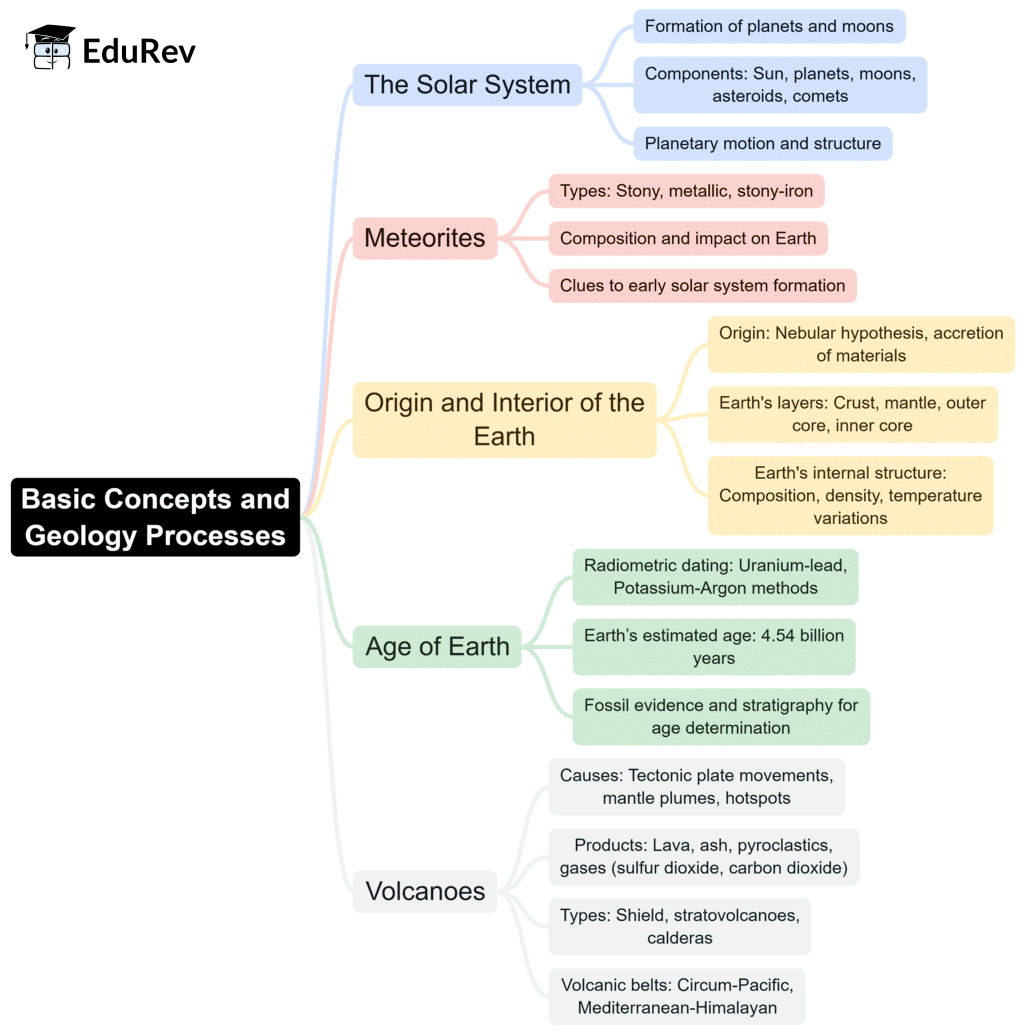UPSC Exam > UPSC Notes > Geology Optional for UPSC > Mind Map : Basic Concepts and Geology Processes
Mind Map : Basic Concepts and Geology Processes | Geology Optional for UPSC PDF Download

The document Mind Map : Basic Concepts and Geology Processes | Geology Optional for UPSC is a part of the UPSC Course Geology Optional for UPSC.
All you need of UPSC at this link: UPSC
|
64 videos|135 docs
|
FAQs on Mind Map : Basic Concepts and Geology Processes - Geology Optional for UPSC
| 1. What are the main branches of geology that UPSC aspirants should be familiar with? |  |
Ans. The main branches of geology include physical geology, historical geology, mineralogy, petrology, paleontology, geochemistry, and structural geology. Each branch focuses on different aspects of the Earth, such as its materials, processes, history, and structure, which are essential for understanding various geological phenomena relevant to UPSC examinations.
| 2. How does plate tectonics influence geological formations? |  |
Ans. Plate tectonics explains the movement of the Earth's lithosphere, which is broken into tectonic plates. These movements can lead to the formation of mountains, earthquakes, and volcanic activity. Understanding plate tectonics is crucial for UPSC aspirants as it connects to various geological processes and their implications on the Earth's surface.
| 3. What are the different types of rocks, and how are they classified? |  |
Ans. Rocks are classified into three main types: igneous, sedimentary, and metamorphic. Igneous rocks form from cooled magma or lava, sedimentary rocks from the accumulation of sediments, and metamorphic rocks from the transformation of existing rocks under heat and pressure. This classification is significant for UPSC candidates as it forms the basis for understanding geological processes and Earth materials.
| 4. Why is the study of fossils important in geology? |  |
Ans. The study of fossils is essential in geology as it helps to understand past life forms and their environments, aiding in the reconstruction of Earth’s history. Fossils provide insight into evolutionary processes, changes in climate, and geological time scales, making them a key topic for UPSC aspirants in historical geology.
| 5. What role does geochemistry play in understanding geological processes? |  |
Ans. Geochemistry involves the study of the chemical composition of Earth materials and the chemical processes that occur within its systems. It plays a vital role in understanding the formation of minerals, the cycling of elements, and the interactions between the lithosphere, hydrosphere, and atmosphere. This knowledge is crucial for UPSC candidates in analyzing geological phenomena and environmental issues.
Related Searches
















